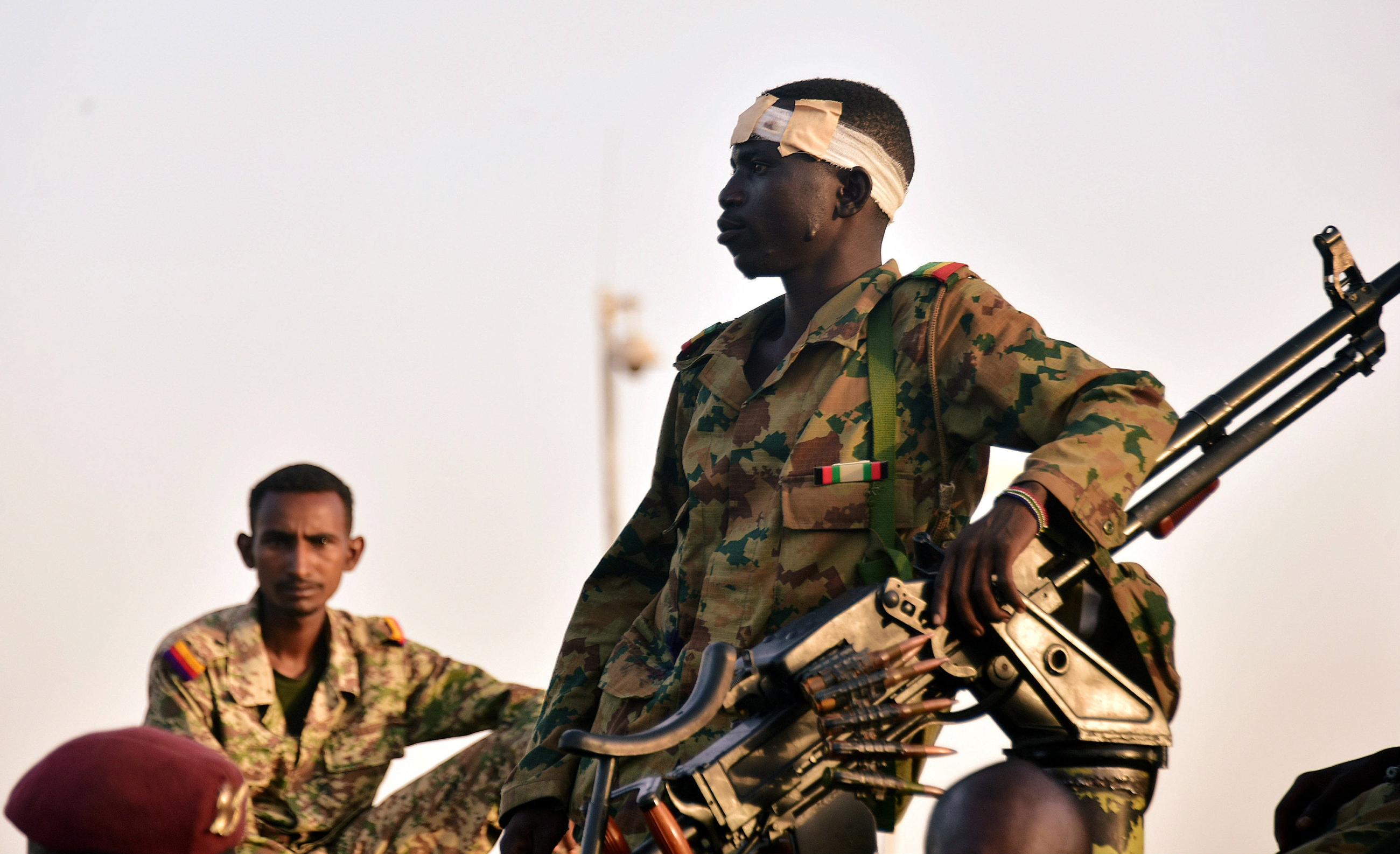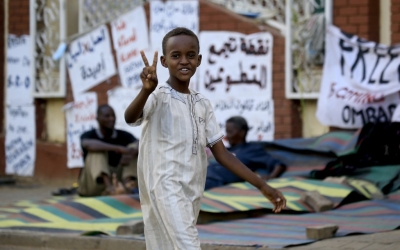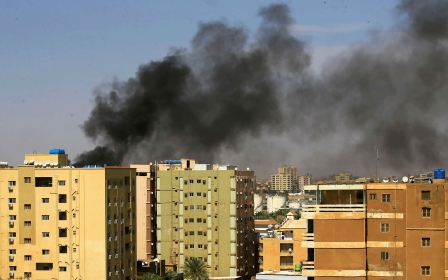Sudan's President Omar al-Bashir steps down from power: Sources

Government sources and a provincial minister have told the Reuters news agency that Sudan President Omar al-Bashir has stepped down from power and consultations are under way to form a transitional council.
Adel Mahjoub Hussein, the minister of production and economic resources in North Darfur, told Dubai-based al-Hadath TV that "there are consultations to form a military council to take over power after President Bashir stepped down".
Sudan's armed forces will make an important announcement soon, state television said on Thursday as troops were deployed in Khartoum after months of protests against the president.
"The armed forces will present an important statement shortly. Be ready for it," the announcement on state television read, without giving further details.
A Sudanese source also told Middle East Eye that Bashir had resigned.
A source told Reuters that Bashir was under house arrest with a number of aides at the presidential palace.
Earlier, the army and security services deployed troops around the palace, defence ministry and on major roads and bridges in Khartoum as thousands of people flocked to an anti-government protest outside the ministry, a witness said.
Khartoum international airport has also reportedly been shut down.
Protesters outside the defence ministry chanted: "It has fallen, we won."
Why are Sudanese protesting against their government?
+ Show - HideSudanese protests have evolved in the space of less than six months from complaints about bread prices to calls for long-term leader Omar al-Bashir to go and demands for a civilian-led transition to democracy.
Here's a summary of the key moments so far since the protests began.
19 December 2018: People take to the streets in the city of Atbara to protest against a government decision to triple the price of bread, torching a local ruling party office. By the next day protesters on the streets of Khartoum and other cities calling for "freedom, peace, justice". Police try to disperse the crowds, resulting in at least eight deaths. Dozens more will be killed in the weeks of protest that follow
22 February 2019: Sudanese President Omar al-Bashir declares a nationwide state of emergency. He swears in a new prime minister two days later, as riot police confront hundreds of protesters calling for him to resign
6 April: Thousands gather outside the army's headquarters in Khartoum, chanting "one army, one people" in a plea for the military's support. They defy attempts by state security forces to dislodge them and troops intervene to protect them
11 April: Military authorities announce they have removed Bashir and that a transitional military council will govern for two years. Despite celebrations at Bashir's demise, protest leaders denounce the move as a "coup" and the protesters remain camped outside army headquarters.
14 April: Protest leaders call on the military council to transfer power to a civilian government
20 April: Sudan's military rulers hold a first round of talks with protest leaders
27 April: The two sides agree to establish a joint civilian-military ruling council, but talks stall over differences in the composition of the council, with both sides demanding a a majority
15 May: With negotiators reported to be close to agreeing a three-year transition to civilian rule, military leaders suspend talks and insist protesters remove barricades outside the army's headquarters. Talks resume on 19 May but break down again on 20 May, with the opposition insistent that a civilian must head the transitional governing body
28 May: Thousands of workers begin a two-day strike to pressure the military rulers and call for civilian government
3 June: At least 35 people killed and hundreds injured, according to opposition-aligned doctors, as security forces firing live ammunition move to disperse the protest camp outside army headquarters
4 June: General Abdel Fattah al-Burhan, the head of the military council, announces that all previous agreements with protest leaders are scrapped and says elections will be held in nine months
Saudi Arabia's Al Arabiya TV also reported that Bashir had resigned and several officials were arrested, including the defence minister.
State television and radio played patriotic music, reminding older Sudanese of how military takeovers unfolded during previous episodes of civil unrest.
Divisive figure
Bashir, a former paratrooper who seized power in a bloodless coup in 1989, has been a divisive figure who has managed his way through one internal crisis after another while withstanding attempts by the West to weaken him.
Sudan has suffered prolonged periods of isolation since 1993, when the United States added Bashir’s government to its list of terrorism sponsors for harbouring Islamist militants.
Washington followed up with sanctions four years later.
Bashir has also been indicted by the International Criminal Court (ICC) in The Hague over allegations of genocide in Sudan’s Darfur region during an insurgency that began in 2003.
The latest crisis has escalated since the weekend, when thousands of demonstrators began camping out outside the Defence Ministry compound in central Khartoum, where Bashir's residence is located.
Clashes erupted on Tuesday between soldiers trying to protect the protesters and intelligence and security personnel trying to disperse them.
At least 11 people died in the clashes, including six members of the armed forces, the information minister said, citing a police report.
Since 19 December, Sudan has been rocked by persistent protests sparked by the government's attempt to raise the price of bread, and an economic crisis that has led to fuel and cash shortages.
Opposition figures have called for the military to help negotiate an end to Bashir's nearly three decades in power and a transition to democracy.
The demonstrators at the Defence Ministry had said that they wanted to submit a petition for the armed forces to take their side in their attempt to remove Bashir and his administration.
Middle East Eye propose une couverture et une analyse indépendantes et incomparables du Moyen-Orient, de l’Afrique du Nord et d’autres régions du monde. Pour en savoir plus sur la reprise de ce contenu et les frais qui s’appliquent, veuillez remplir ce formulaire [en anglais]. Pour en savoir plus sur MEE, cliquez ici [en anglais].







